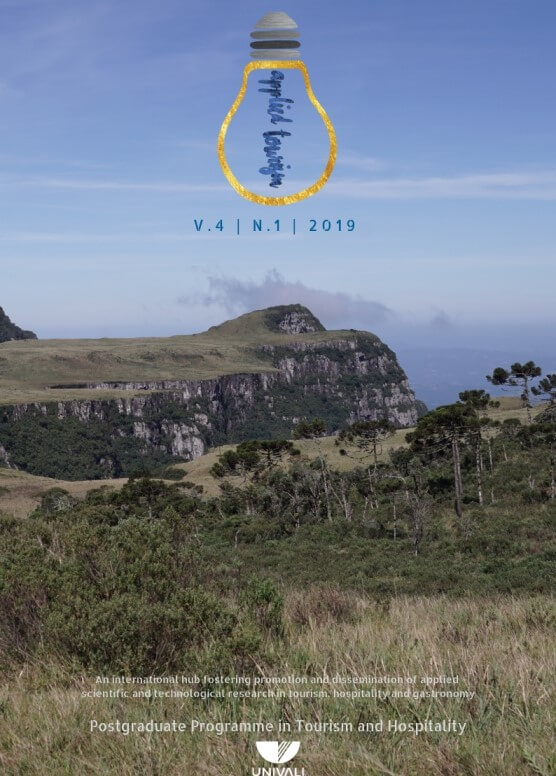A EFICÁCIA DO USO DA REALIDADE VIRTUAL PARA O MARKETING DO ATRATIVO TURÍSTICO USINA DE ITAIPU
DOI:
https://doi.org/10.14210/at.v4n1.p18-40Keywords:
Realidade virtual. Marketing. Tecnologia no Turismo. Usina de Itaipu. Eficácia.Abstract
A era digital provocou profundas mudanças nas relações de consumo. Neste contexto, as empresas devem acompanhar a revolução tecnológica para se manterem no mercado e conquistarem espaço na mente dos consumidores, criando momentos de envolvimento profundo com seus clientes e prospects. O estudo visa constatar a eficácia da utilização da realidade virtual como ferramenta de marketing do atrativo turístico Usina de Itaipu, por meio dos indicadores de reputação da empresa, risco percebido e engajamento do consumidor. A pesquisa foi descritiva, do tipo survey, onde os sujeitos entrevistados classificaram afirmações em escala Likert antes e depois da utilização dos óculos de realidade virtual, a fim de identificar a variação após o uso da tecnologia. As respostas foram organizadas em planilha, gerando tabelas que permitiram a comparação e análise dos dados, bem como o cálculo da média e desvio padrão de cada variável. Os resultados mostraram que as médias foram superiores após o uso da realidade virtual e houve maior consistência nas respostas, com a diminuição do desvio padrão, confirmando a eficácia do uso da realidade virtual como ferramenta de marketing de atrativos turísticos.Downloads
Published
Issue
Section
License
In this term of responsibility I (we) certify the participation in the drafting of the attached article, thereby making public my (our) responsibility for its content. I (we) declare not omitting any connections or financing agreements between I (we) and entities and / or institutions that may have an interest in the publication of this article. I (we) certify that the article is original and that the work, in whole or in part, or any other work with content substantially similar to my (our) authorship, in any other format (printed or electronic), was not sent to another journal and will not be sent while is being considered by the Applied Tourism. In this consent form, the authors give permission to the journal, in the case of approval by the Editorial Board, for the publication of the attached article in hard copy and/or electronic form, in a regular edition of the journal.










